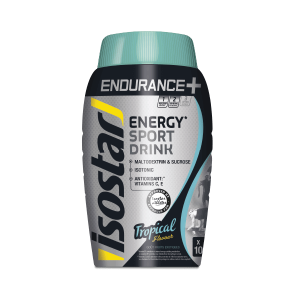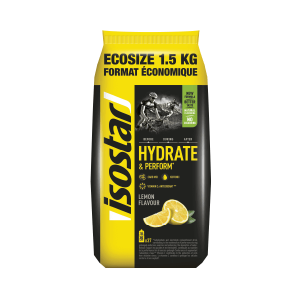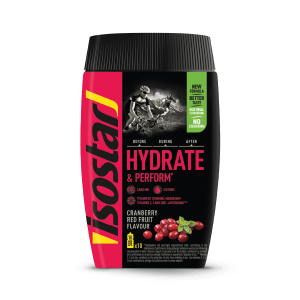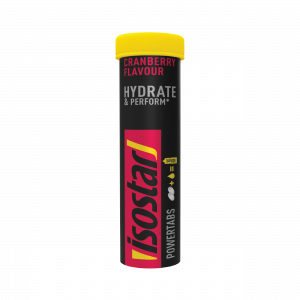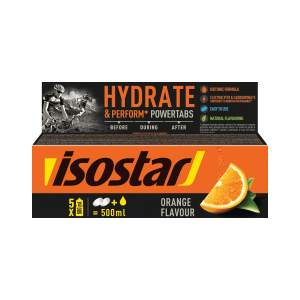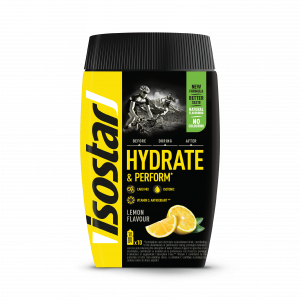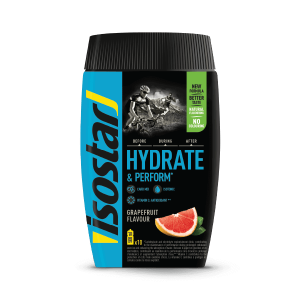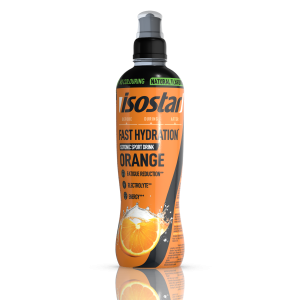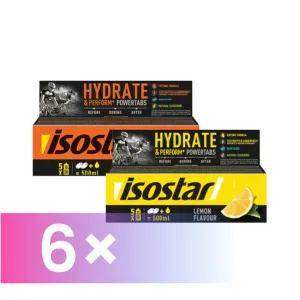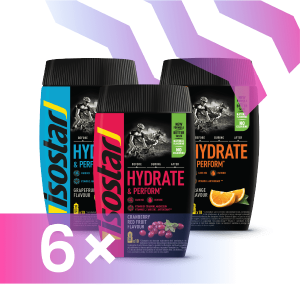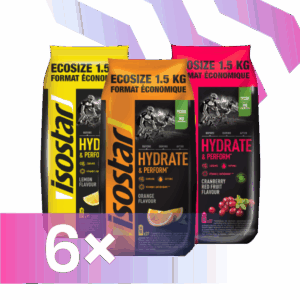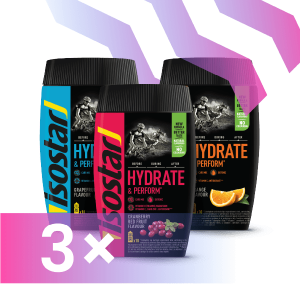
Isotonic drinks and hydration: finding the right balance for marathon runners
Running a marathon is a real sporting challenge, both physically and mentally. For runners to achieve their best performance during this prolonged effort, hydration is vital. To meet this need, the use of energy drinks is one solution. But to what extent? How do you find the right balance between water and isotonic drinks?
Preventing dehydration, the marathon runner’s enemy
What mechanisms lead to dehydration during a marathon?
Dehydration during a marathon is a very common problem that can be avoided. The body, which is put to a severe test during exercise, undergoes changes. Because when athletes take on long distances, it’s inevitable: the body produces heat.
Since the body is homeothermic, it will try at all costs to return to a balanced body temperature to avoid overheating. The problem? These interconnected mechanisms for returning to equilibrium are likely to lead to severe dehydration. What are they?
- Sweating: the body evaporates water through perspiration from the skin.
- Breathing: runners exhale hot, humid air during exercise, resulting in a significant loss of water.
- Loss of electrolytes: as well as causing a loss of fluids, perspiration also causes a loss of electrolytes (sodium, potassium, magnesium). These minerals help to maintain a good level of water inside and outside the cells. As they are eliminated, disturbances encourage further water leakage, also leading to dehydration.
- Apart from the physiological mechanisms, other factors should not be overlooked: the duration of the effort and the environmental conditions (high heat, humidity, altitude, etc.).
How can I recognise the signs of dehydration?
Even if the ideal is to prevent dehydration rather than treat it, every runner needs to recognise the signs of dehydration to avoid tragedy:
- Intense thirst: this is one of the first signs your body sends out;
- An increase in heart rate: the heart is trying to compensate for the drop in blood volume;
- Faster breathing;
- A drop in blood pressure;
- Headaches;
- Muscle cramps;
- A feeling of weakness and fatigue.
If you notice any of these symptoms during a marathon, stop and seek medical advice immediately in the most serious cases.
What impact does dehydration have on sporting performance?
As well as the health consequences of a lack of hydration, sporting performance is also affected.
The muscles used for running receive less nutrients, oxygen and electrolytes, all of which are essential for their proper functioning and effective muscle contraction. The result? Muscle cramps, pain and loss of strength, often impacting on your time to the finish line.
What’s more, dehydration reduces oxygen transport, making general blood circulation less efficient: you get tired more quickly.
However, it should be noted that according to certain scientific studies, mild to moderate dehydration does not automatically lead to a drop in performance, although it does contribute to it. Over and above its effect on your performance, dehydration can lead to significant health risks (headaches, fatigue, dizziness, muscle weakness, constipation, high heart rate, kidney failure, etc.).
Simple water and isotonic drinks: what are the differences?
Simple water and isotonic drinks are not the same thing: they do not have the same composition, objectives or uses.
Water contains nothing but water, with no additives. Isotonic drinks, on the other hand, contain carbohydrates and electrolytes. They may also contain vitamins, flavourings and other ingredients that give them additional properties.
Whereas water is simply intended to hydrate the body in everyday life, the aim of isotonic drinks is to hydrate the body more quickly, while providing additional benefits to support physical effort: energy, electrolytes, etc.
Simple water should therefore be consumed for regular daily hydration and during physical exertion of less than 1 hour in a cool environment, while energy drinks should be used before, during and/or after intense and prolonged physical exertion.
What are the advantages of drinking an isotonic energy drink?
Prevent hyponatremia and replenish electrolytes
Isotonic drinks are formulated with electrolytes such as sodium, potassium and magnesium, which are essential for the body’s equilibrium. But there’s a very common phenomenon among marathon runners. By drinking plain water to avoid dehydration, they do not necessarily replenish their electrolyte stores sufficiently. This can lead to hyponatremia, i.e. an abnormally low level of sodium in the blood compared with the amount in water.
The first symptoms of hyponatremia are dizziness, swollen hands, confusion and nausea.
Isotonic drinks, rich in sodium, are specially formulated to replenish electrolyte stocks lost through perspiration.
Boost energy with carbohydrates
Isotonic drinks often contain simple carbohydrates that are easily digested and assimilated by the body. They are therefore quickly used as a source of energy during prolonged exercise.
By consuming this type of drink, you help to avoid the risk of hypoglycaemia, maintain endurance and delay muscular fatigue by constantly providing an available source of energy.
Improve water absorption for faster hydration
Isotonic drinks have a composition and osmolarity similar to that of blood and body fluids.
For information, osmolarity indicates the total concentration of dissolved particles in a liquid. This similarity promotes faster absorption of electrolytes and carbohydrates, making it particularly effective for hydrating runners quickly, compared with a hypotonic drink such as tap water.
What type of isotonic drink should I choose?
On the energy drink market, the choice available could almost give you a headache, such is its vastness.
However, the generic term “energy drink” should not mislead the marathon runner in you. It can be used to describe a classic energy drink, as well as drinks specially designed for the needs of sportsmen and women.
So take care when choosing sports drinks to ensure you get a good supply of electrolytes.
In terms of form, they often come in liquid form, or as a powder to be diluted in water. In terms of flavour, it’s up to you: red fruit, lemon or other flavours are available. You can even find organic options!
In any case, it’s essential that you test your energy drink during your pre-marathon training to check that it suits you in terms of taste, effectiveness and digestive tolerance.
ISOSTAR ISOTONIC DRINKS
BUNDLES
-
Isostar Hydrate & Perform Powertabs Isotonic x 6
Original price was: €38.70.€29.02Current price is: €29.02. -
Isostar Hydrate & Perform powders x 6
Original price was: €62.70.€40.75Current price is: €40.75. -
Isostar powder Hydrate & Perform Ecosize 1.5kg x 6
Original price was: €179.70.€116.80Current price is: €116.80. -
Isostar powder Hydrate & Perform x 3
Original price was: €31.35.€21.95Current price is: €21.95.

